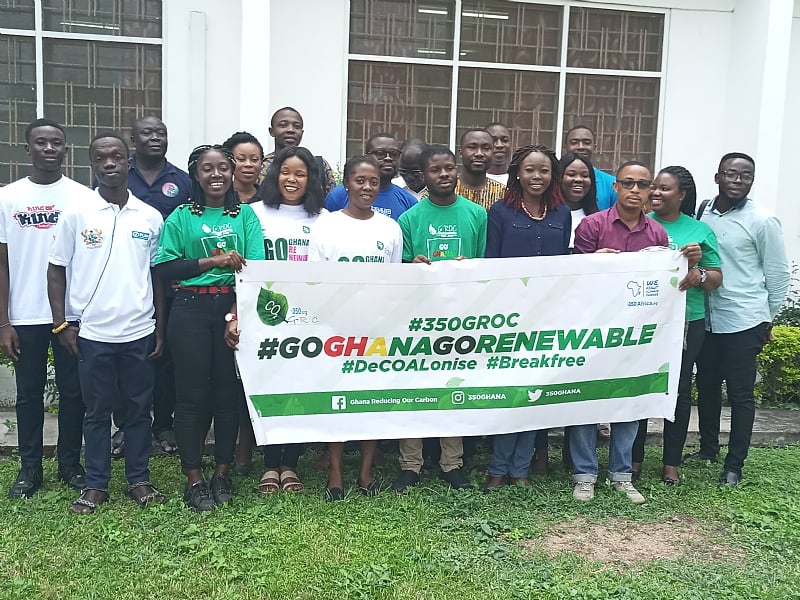By Christian Emmanuel Bruku and Kimberley Thomas
Fossil fuel-based power plants have become Ghana’s primary response to energy insecurity. What does this mean for the country’s transition to a sustainable and just energy future?
There is little doubt as to the importance of energy for improving people’s well-being and livelihoods. Energy is a fundamental element that cuts across every sector of society—what French sociologist Marcel Mauss would describe as a “total social fact”.
Ghana has long prioritized the achievement of universal access to electricity as a pillar of its development agenda. While the sourcing mix for electricity is diverse, the country has historically depended on hydroelectric dams for its power needs. The Akosombo dam, for instance, generates 1020 MW of electricity, supplying nearly 25% of the power consumed by Ghana’s population of 31 million people. Likewise, the transformation of the Tema metropolis in the Greater Accra region into an industrial hub can largely be attributed to hydropower from this dam (Figure 1).
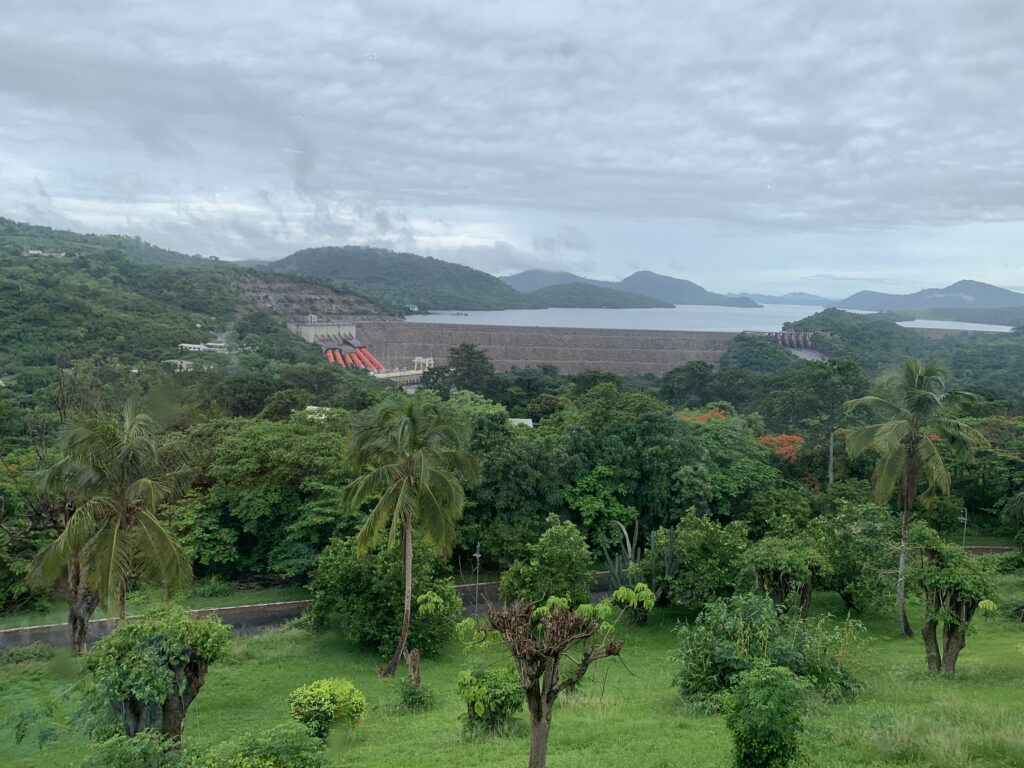
Figure 1: The Akosombo Dam. Source: Christian Emmanuel Bruku
While policy measures have focused almost exclusively on accessibility, public discussions on electricity have expanded to encompass concerns around affordability, reliability, renewability, equity, and democratic accountability. Critical evaluations of electricity access across Africa have revealed mounting problems of unreliability and rising cost. For instance, inadequate power supply and persistent power outages are estimated to have cost Ghana’s economy $680 million USD (2% of GDP in 2014).
The unstable power supply is a long-standing issue, with the term dumsor coined in 2013 to describe the precariousness of the power situation in Ghana. The word translates to “off-on” and is used to depict the frequent power outages in the country; these outages have led to sporadic social protests in recent years. The emerging consensus is that beyond the expansion of access to electricity, ensuring reliability, affordability, and democratic accountability merit equal consideration in the nation’s quest to achieve sustainable energy.
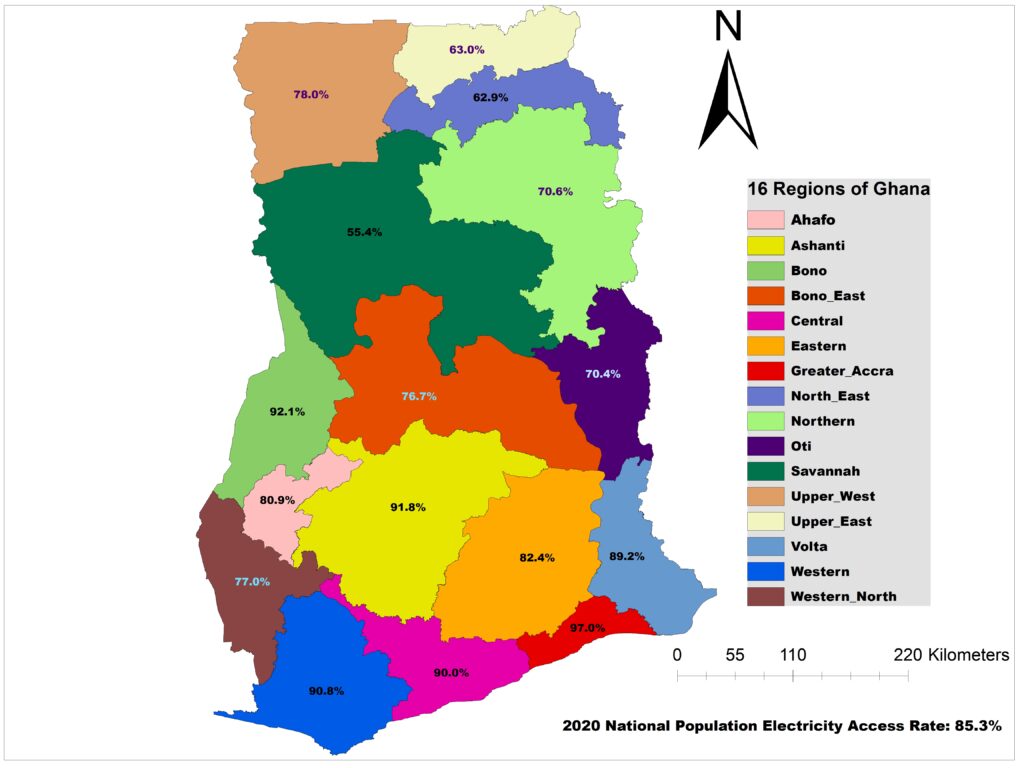
Figure 2: Electricity Access Map of Ghana. Source: Christian Emmanuel Bruku: With data from the National Energy Statistics, 2021
Responses to electricity unreliability
Over the past decade, Ghana lost an average of $2.1 million USD daily due to production losses caused by electricity supply challenges. This has affected the economic and social sectors including industries, residences, and agriculture. The unreliable power has also had adverse effects on crucial infrastructure such as water supply and telecommunications systems. In some communities, it has impeded access to quality healthcare. For example, clinics in rural areas struggle to properly store medications that require refrigeration. Furthermore, a recent study found a positive association between the frequency of power outages and in-facility mortality in Ghana, with the risk for mortality estimated to increase by 43% for each day the power was out for over 2 hours. In the education sector, technology is essential for teaching and learning, especially at the tertiary level. However, unreliable power has disrupted the delivery of quality education by hindering the use of electrically-powered learning aids such as overhead projectors and computers.
Periods of power rationing, which emerged in response to electricity unreliability, were reportedly less frequent in affluent neighbourhoods. Conversely, power rationing is a common occurrence in low-income areas, underscoring a deviation from the distributional tenet of energy justice. When they do lose power, most affluent households can resort to diesel generators. However, middle-income households often find that the adoption of alternative or backup power sources is a financial burden. For low-income households, the inability to afford or sustain alternative power systems exacerbates energy poverty for affected households.
Additionally, charcoal—which is typically made by burning wood—has become a common strategy to satisfy energy needs. However, the conversion of trees into wood fuels has substantial consequences for biodiversity, soil erosion, and climate change. The production and use of wood fuels for cooking emit large amounts of carbon dioxide, carbon monoxide, and other volatile compounds into the air, adversely impacting health. Fossil-fuelled generators emit nitrogen oxide and carbon monoxide, both of which are harmful to human and environmental health. Furthermore, women are disproportionately affected by this issue due to traditional gender roles in which they are responsible for preparing food. Thus, women are more exposed to the hazards associated with the indoor use of wood fuels.
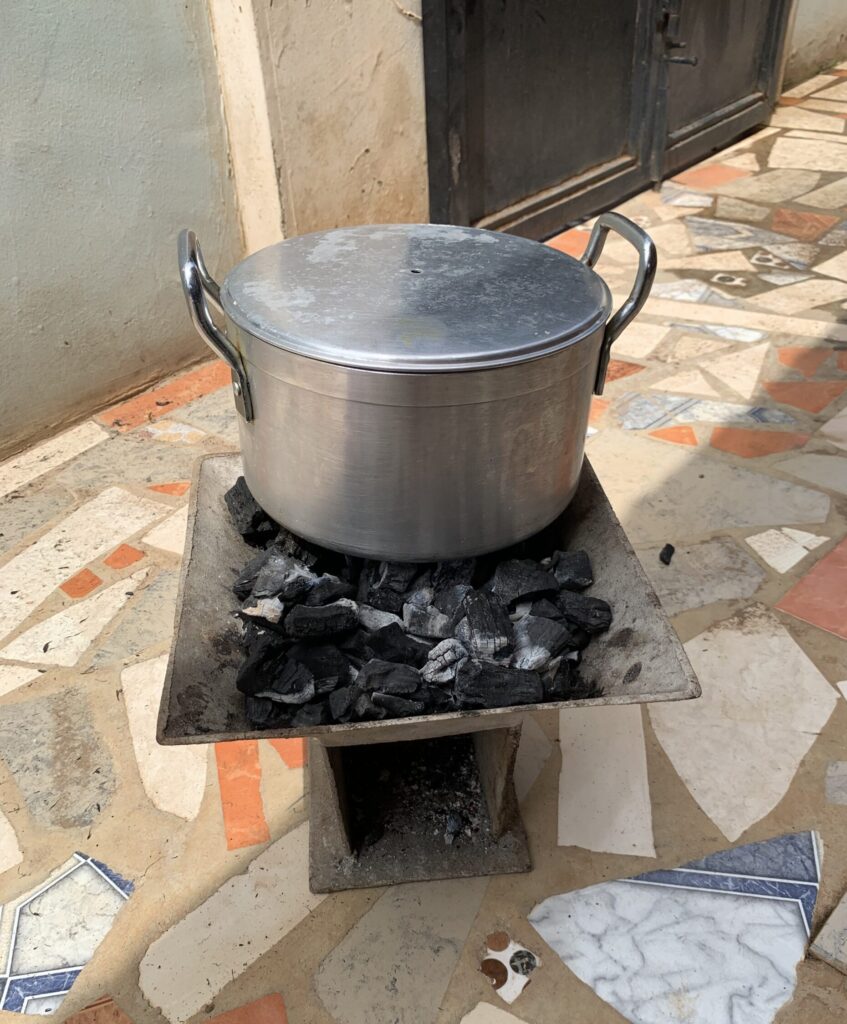
Figure 3: Charcoal for cooking. Source: Christian Emmanuel Bruku
The State has responded to the power unreliability problem in various ways. While it still advocates for renewable alternatives with the recent additions, for example, of the Tsatsadu Micro-hydro generation station and the Bui Power Authority (BPA) floating solar plant, the main strategy has been to enter into agreements with private corporations called Independent Power Producers (IPPs). Many of these IPPs rely on fossil-fuelled thermal plants. At present, these plants contribute about 70% of the country’s power, replacing hydro as the main source. Though private corporations have helped improve reliability, extensive reliance on these fossil-fuelled plants to solve Ghana’s power problems raises significant questions about ecological and social sustainability.
Analysts at the Africa Centre for Energy Policy (ACEP), the Integrated Social Development Centre (ISODEC), and the Civil Society Platform on Oil and Gas (CSPOG) have expressed concern over Ghana’s overdependence on fossil-fuelled thermal power generation and minimal investment in renewables. They have argued that this overreliance on fossil-fuelled plants could undermine the realization of the Paris Agreement (COP21) on reducing greenhouse gas emissions to avert the worst consequences of climate change.
The impacts of fossil-fuelled power plants can extend far beyond their immediate locations and have long-term effects on other people and ecologies. The Aboadze enclave in the Western region, for instance, is home to several thermal power plants that emit harmful substances that cause acid rain. These pose a significant risk to the vegetation and crops in nearby farming communities. Meanwhile, the siting of fuel plants and laying of fuel pipes in 2018 directly affected the livelihoods of about 120 farmers in the Asemda Suazo, Anokye, and Atuabo communities.
Social justice concerns emerge from the fact that some persons affected by the project lost farms, fish ponds, buildings, and other commercial plots, with little or no compensation. Some residents expressed a lack of awareness about the projects as their concerns and approval were not sought before the demarcation of their land. The lack of proper compensation has resulted in their impoverishment, making it daunting for them to afford essential needs such as medical care and education of their wards. A lack of inclusive decision-making processes that take into account the welfare of affected individuals is the antithesis of social justice and democratic governance. Another layer of social injustice related to this issue is the case of women tenants on farmlands in Asemda Suazo who were blocked from receiving just compensation for livelihood losses. The women’s crops were included in the fuel project’s valuation process, yet the landlords retained the compensation without regard to the women who actually produced the crops.
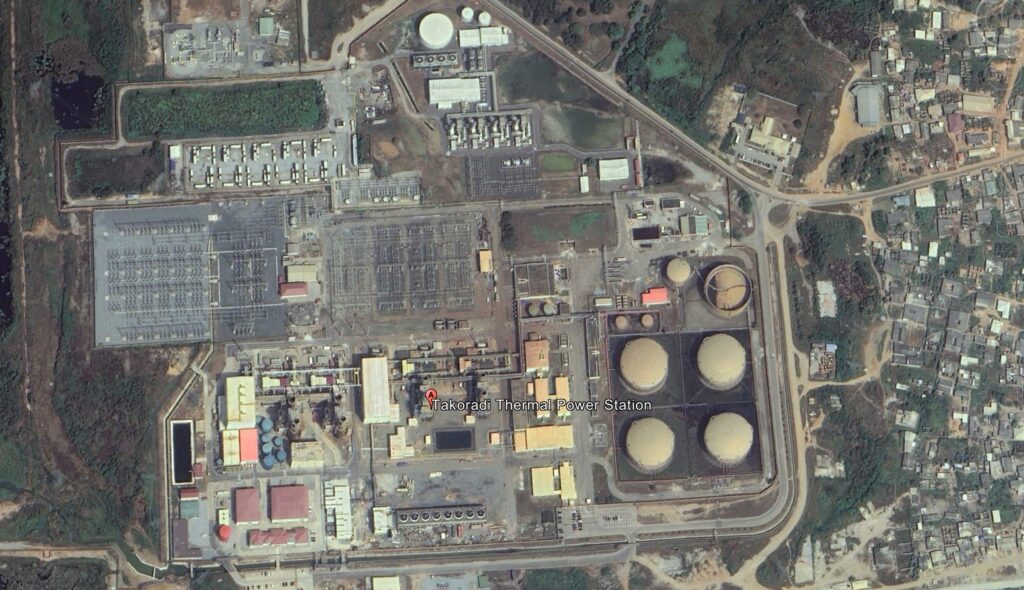
Figure 4: Aerial view of Takoradi Thermal Power Station at Aboadze, Western Region. Source: Google Earth Pro 7.3 (2022) Takoradi Thermal Power Station, Lat. 4.971738, Long. -1.658545 [Accessed 05/15/2023]
How can Ghana transition towards a future of sustainable and equitable energy?
Rectifying Ghana’s power unreliability requires the deployment of nuanced electricity provision frameworks and the engagement of diverse stakeholders. While the expansion of hydropower dams and fossil-fuel-based power plants may be politically and technically expedient, merely increasing the proportion of these sources in Ghana’s generation mix does not guarantee electricity reliability, renewability, equity, nor sustainability. Climate change exacerbates these challenges. Indeed, the unreliability of electricity supply from 2006 to 2008 and 2012 to 2015 was largely attributed to droughts which hampered the ability to harness the total installed capacities from Akosombo, Kpong, and Bui hydroelectric power (HEPs) projects.
It is therefore vital to consider diverse sources that are less vulnerable to climate change risks, as well as more efficient storage and transmission infrastructures. Overall, it is crucial to avoid quick fixes that may simply introduce new adverse social and ecological impacts, particularly as the country aims to achieve a just and equitable transition to net-zero emissions by 2060.
While all energy forms have some detrimental environmental impact, renewable energy has a significantly lower net impact on both humans and the environment. However, renewable energies are capital-intensive, which means the State has an important role to play in transitioning to these safer forms of energy for electricity across the country. Additionally, given that electricity has broad social dimensions and impacts every aspect of society, reliability responses must target social groups and communities that have higher vulnerabilities to energy poverty.
To address the dilemmas created by the lack of electricity accessibility, reliability, and social justice, Ghana must invest in policy and regulatory frameworks that will promote the diversification of its energy mix. At the same time, the country must prioritize the use of renewable energy sources such as solar, wind, hydro, and biomass. It must also make robust social investments in public services and infrastructure to achieve these goals. At the micro level, a clear example of needed policy action is the subsidizing of off-grid energy solutions such as solar panels and batteries for energy-poor communities. At the meso- and macro- levels, the government should provide leadership and critical investment in transformative decentralized energy systems such as renewable-based mini-grids. These initiatives will put Ghana on the path of realizing ecological sustainability, equity, democratic governance, and social justice in the country’s energy landscape.
_ _ _
Profile picture: 350 Ghana youth network urges government to expedite action to promote renewables (July 3, 2018). Source: modernghana.com
Acknowledgment: We are grateful to Veronica Jacome, Assistant Professor at the Department of Geography and Urban Studies, Temple University, for her valuable insights and for bringing aspects of “electricity unreliability” to our attention.


